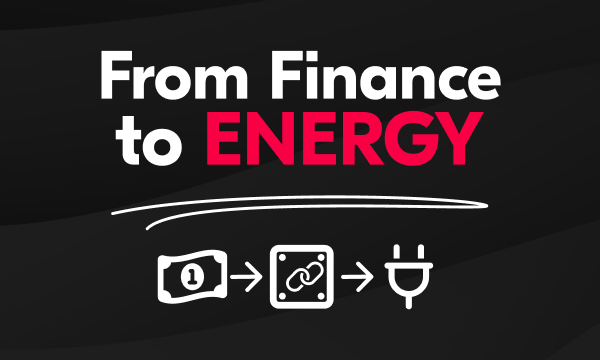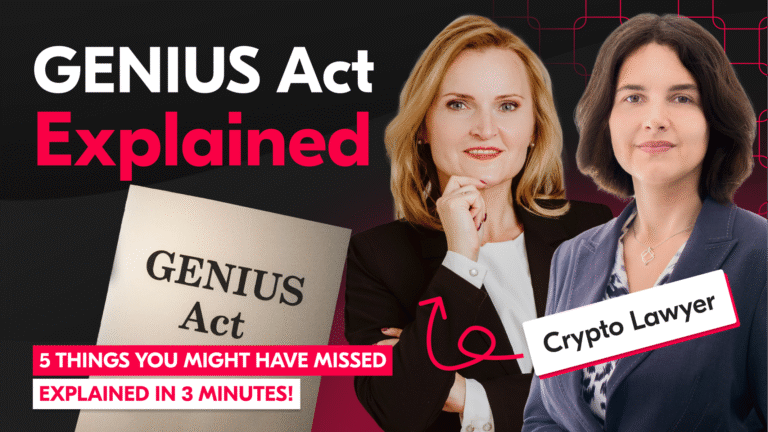If you’ve spent any amount of time in a hospital, you’ve had first-hand experience with the inefficiencies of the healthcare system. Just about everyone has a story or two about red tape. More than being irritating, this friction raises prices, lowers patient satisfaction, and can even put people’s health at risk.
Many tout the benefits of blockchain technology in healthcare data management and the overall patient experience. But let’s take a closer look. What can blockchain actually do for healthcare technology? What will it not do? Is blockchain technology a good fit?
Establishing trust in healthcare technology
Like many blockchain use cases, the first benefit for the healthcare industry is removing the need for trust. In a previous blog post, developer Michał Chatłas took a hard look at blockchain and whether it’s really worth it. “Blockchain technology is beneficial in specific industries where people can’t trust one another,” he wrote. “By design, blockchains establish trust through cryptography. Parties don’t have to trust each other or third parties.” Strong use cases exist in industries where smart contracts can help verify data. Limiting access to sensitive records is another useful feature.
Some startups have begun leveraging blockchain technology to address some healthcare data management challenges. London-based MedicalChain has developed a platform for patients to control access to their medical records. PokitDok’s DokChain hopes to facilitate data exchange across the healthcare landscape. Mediledger, meanwhile, is tracking and verifying medicine in similar ways as you might track food or airplane parts in the supply chain.
Distributed data
At first glance, distributed ledger technology appears to benefit the healthcare industry by storing patient data in all the nodes of a blockchain platform. Allowing hospitals, insurance companies, and patients access to medical records may benefit the industry as a whole. getting everyone on the same page would ease some of the industry’s pain points. Blockchain-based healthcare technologies could significantly reduce the time to track down information across systems.
Currently, patient records exist on centralized databases. It’s unclear how secure these databases are and who has access. Hackers are increasingly targeting healthcare institutions to steal valuable data. A blockchain-based platform could provide a useful tool for controlling who should, and who shouldn’t see patient data.
Patient satisfaction
Consumers would not be the only ones who benefit, however. Hospital administration could check insurance information and see which procedures are covered. Insurance companies could track procedures and automatically pay healthcare providers for services instead of waiting for someone to enter it manually. Increased efficiency and savings will, in theory, optimize the industry and pass savings to people.
Lead blockchain developer at Espeo, Krzysztof Wędrowicz offered an example of a medical emergency. “Let’s say you go on vacation and you break your leg,” he said. “It’s really hard [for the distant hospital] to get your medical history and insurance information quickly. Of course, when you have a broken leg your doctor wants to repair it as fast as possible.” The doctor may have to make quick health decisions that your insurance does not pay for.
In addition to treating a medical emergency, the hospital also needs to determine where to send the bill, or else eat the losses. This uncertainty in the system creates a lot of redundant work and could put people’s health at risk. A blockchain platform which coordinates patient records, a history of procedures, and insurance claims could greatly reduce redundancies and prevent losses. It will also improve the healthcare business model as well as patient experience.
Healthcare data management and confidentiality
However, keeping confidential medical records on a fully auditable, transparent ledger raises privacy concerns. A tech-savvy person could connect the dots. Every person accessing patient records would become a point of weakness. While no one would be able to change entries without consensus, anyone could see the entry. Seeing when and where a transaction occurred could cause significant problems for medical confidentiality.
Take abortion as an extreme example. In countries where the procedure is criminalized regardless of where the procedure occurred, investigators could find out. Even where it is legal, attackers could still use the data for malicious ends. Controlling who sees medical data and for how long through encryption is key.
Wędrowicz believes the benefits outweigh the negatives. Private, permissioned blockchains such as Hyperledger fabric or Corda would be the best fit in blockchain-based healthcare. Permissioned blockchains allow companies or consortiums of companies to set rules for who gets access to data on the blockchain. Though you would still need to trust everyone with permission.
Leveraging blockchain in healthcare
As I mentioned earlier, some startups have started to apply private blockchains in the healthcare industry. London-based startup MedicalChain aims to give patients full control over their medical data. In an interview over Telegram, communications manager, Tim Robinson explained the company offers a new paradigm of transparency to patients.
“MedicalChain safeguards sensitive information by encrypting all data through the platform,” he said. “Hyperledger Fabric provides the means for an advanced access control mechanism, so that patients can be in full control of their data and who has access to this… Every transaction will be logged on the blockchain, including the individuals who gained access to this, at what time, and what data [was accessed].”
Patients give their explicit consent and can revoke it as they wish. People can also proactively grant access to specialists or healthcare establishments in case they’re incapacitated. Of course, the decision is still the patient’s decision. “[Users] take responsibility should this not be provided, ” said Robinson.
“To mitigate the chances of access being denied in emergency situations, we can set the platform up so that permission is an opt-in service (which is much more in line with what presently happens) at the discretion of the user, as opposed to an opt-out setup, where blanketed permission is the default.”
Users’ next of kin can also grant access as long as the patient has set it up that way. Robinson contends that it is a much more patient-centric model than what currently exists.
Lingering challenges
It’s important to remember that a blockchain is only a tool, one that would still need oversight and ethical guidelines. Determining who has access and for how long is vital in healthcare data management. Allowing healthcare professionals to quickly and easily access this information while also controlling distribution is one of blockchain’s lingering challenges.
The potential for entering false data or recording a misdiagnosis is still there, but at least data would remain in one accessible place. One specific aspect that blockchain would excel at in healthcare data management is maintaining data integrity. Unauthorized edits or deletions would not occur without a timestamp.
Forbes contributor Robert Lord wrote that one of blockchain’s advantages is that it would fight against integrity-based attacks. Careless insiders or hackers could cause patient safety issues and call an institution’s reputation into question. “Blockchain technology is an excellent counter to these integrity-based attacks, he wrote, “and it’s a good forward-looking tool we might deploy to address them.” Blockchain establishes a fully auditable immutable record of changes.
Conclusion
Healthcare’s complex web of actors makes it a compelling use case for blockchain technology. Stakeholders who don’t cooperate and who don’t necessarily trust each other could benefit from a decentralized healthcare data management platform. Blockchain could empower patients by allowing them to control access to medical records. Ensuring data integrity and making it considerably cheaper to send and receive medical data are two of the most compelling cases.
As with any new technology, there are major trade-offs to consider. While keeping medical records in one place would greatly reduce the time and cost to track it down, it also raises privacy concerns. Maintaining data integrity is one of its most powerful features blockchain tech offers so far. Savings for healthcare providers, insurance companies, and consumers could spur widespread adoption. Until then, prices will continue to rise, and patients health will suffer.



